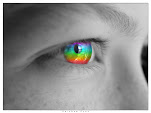I recently started writing two stories.
The first is a re-telling of the Little Mermaid--the Hans Christian Anderson version. The second is the re-telling of a bible story.
I got stuck both times. I can't seem to figure out how to write about things I haven't experienced. How can I possibly write about facing imminent death when I've never faced my mortality or really watched any one else face it? How can I possibly write about having oodles and oodles of faith when I feel like I land in the "Lord, I believe, help thou my unbelief" camp.
I know people do this all the time. I mean, every fantasy book alive is about things we haven't experienced. I know that people write mysteries and stuff like that without living them out, but I can't seem to figure out how to do it. I want my stories to be real. I want people to read them and say, "Yes, that's how it is!". I feel arrogant, a little, to think that I could try to write about facing death and make it real when I've never had to even deal with it.
Sometimes I wonder if I'm asking too much--if I'm trying the impossible. Can I really write what I haven't experienced? Or was I just drawn to the most difficult of stories because I haven't experienced it?
What say you?
The first is a re-telling of the Little Mermaid--the Hans Christian Anderson version. The second is the re-telling of a bible story.
I got stuck both times. I can't seem to figure out how to write about things I haven't experienced. How can I possibly write about facing imminent death when I've never faced my mortality or really watched any one else face it? How can I possibly write about having oodles and oodles of faith when I feel like I land in the "Lord, I believe, help thou my unbelief" camp.
I know people do this all the time. I mean, every fantasy book alive is about things we haven't experienced. I know that people write mysteries and stuff like that without living them out, but I can't seem to figure out how to do it. I want my stories to be real. I want people to read them and say, "Yes, that's how it is!". I feel arrogant, a little, to think that I could try to write about facing death and make it real when I've never had to even deal with it.
Sometimes I wonder if I'm asking too much--if I'm trying the impossible. Can I really write what I haven't experienced? Or was I just drawn to the most difficult of stories because I haven't experienced it?
What say you?


To be truly a writer, I think, is to be unbelievably empathetic. In crafting a character who, though fiction, seems real, the writer can but them so much in that frame of mind that they do know what it is to experience what their character is experiencing.
Speaking for myself, those moments are brief and fleeting, as I'm still a novice in so many ways. Every once in awhile though, something clicks, and even though I can't possibly know what it is to experience a certain event, in that moment I really do know.
I think it is something that comes with time, talent, and practice. I've often asked myself the same questions you're asking here, but I've learned the only way to answer them is to write.
I think the thing about stories is that regardless of how novel the setting/world/conflict, the themes are always universal. I think sometimes you have to go to a place of letting yourself feel hard things. In the case of a character facing death and the loss that comes with it, maybe it's about letting yourself feel how much it would hurt to lose someone you love deeply and then writing that honestly. I don't really have the answers here because I write fluff, but for whatever it's worth...
I know what you mean. Sometimes I reread what I have written and wonder if I have any real credibility. But there is a story in you that will resonate with a reader because of the idea behind it. The details are just the vehicle.
Oh my goodness, I love what Kim said about empathy! I'm not very good at making things up either, but I think where you lack experience, you can always "liken" one of your own experiences, or interview someone else who's been there.
Good luck!
I can't write anything fictional, so I'm no help. Randomly, this post jogged the memory of an episode of the tv show Thirtysomething. One of the characters was taking a writing class and incorporated a broken watch into (from something a friend had told her/him in confidence causing all kinds of drama which is beside the point), and the teacher said that was the only good thing about what he/she had written. It doesn't answer your question of how people write fantasy, but I agree that the best writing comes from something true, or some real life experience. So even if you're writing fiction, somehow you have to channel your own real insights, perspective, experience into it. I'm just not imaginative enough to even try.
P.S. I'd love to have a cup of coffee and chat about faith, or do you prefer tea? Sometimes this blog world is so inadequate!
I have to get so into the movie that is my story that I see and hear what my characters are doing. There's a sort of willful immersion that always precedes my best (to my eye, anyway) work. When it happens--and it's magical when it does--writing down what happens or what someone is feeling is relatively effortless.
How to get there? Not sure I know how to tell you.
I hope this doesn't sound horribly pretentious.